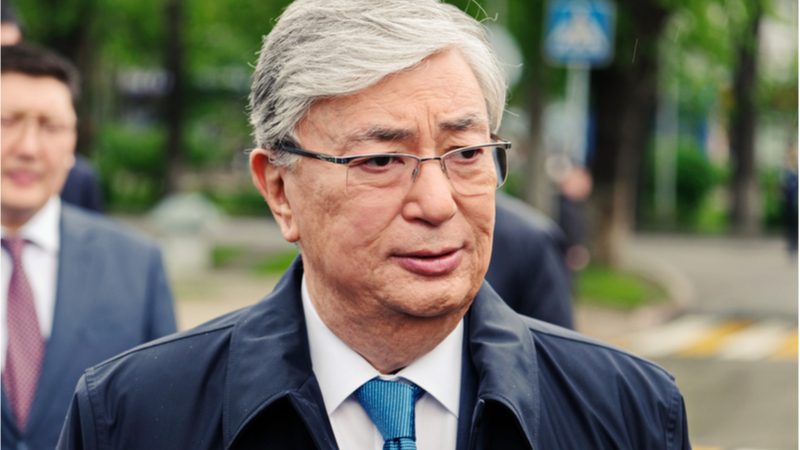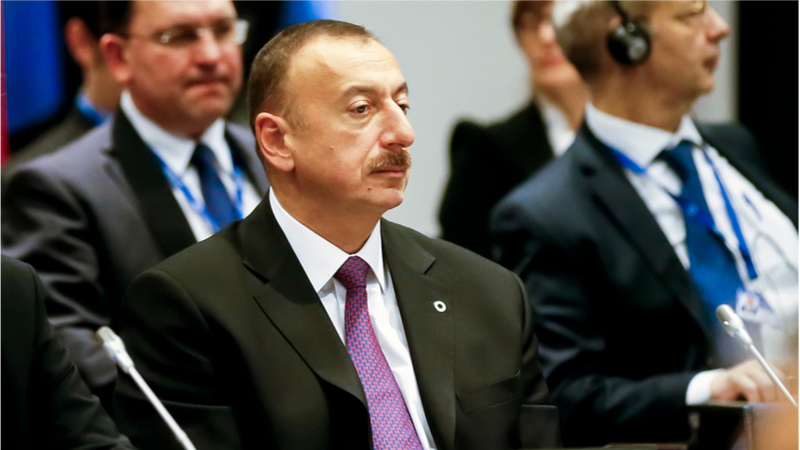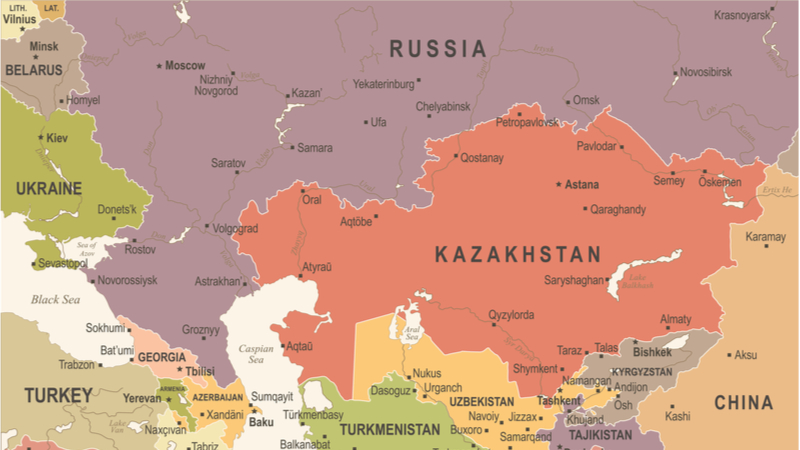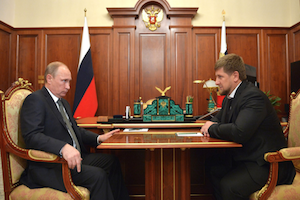Kazakhstan: Evolving Challenges and Opportunties
By Richard Weitz
April 11, 2022
The resistance of Kazakhstan’s government to supporting the Kremlin’s war in Ukraine shows that, despite the brief Russian military intervention in Kazakhstan in January 2022, Kazakhstan still pursues a multi-vector foreign policy. Western governments can reinforce this stance, by which Kazakhstan strives to cooperate with all major powers while preventing the hegemony of any, through targeted support and other measures.

Azerbaijan and Russia's Invasion of Ukraine
By Natalia Konarzewska
April 6, 2022
Like several other countries, Azerbaijan seeks to retain functioning relations with both Russia and Ukraine amid Russia’s invasion. Baku provides Ukraine with humanitarian aid yet avoids actions directly opposing Moscow for fear of retaliation. Baku’s position reflects its interest in maintaining Russia’s acceptance of Azerbaijan’s multi-vector foreign policy and in gaining Moscow’s support for its objectives in Nagorno-Karabakh. Moreover, the recent surge of violence in Nagorno-Karabakh suggests that Baku is taking advantage of the opportunity arising as Western and Russian attention is directed elsewhere to improve its own position vis-à-vis the separatist region.

Russia's War in Ukraine: Implications for Central Asia
By Johan Engvall
March 14, 2022
Russia’s invasion of Ukraine and the West’s economic response to it has put Central Asia in a precarious position. As part of what Moscow perceives as its sphere of interest, the repercussions of Putin’s war are bound to affect the Central Asian countries particularly hard. While anything but static, the nature of the Russia-Central Asia relationship still enables Moscow to retain a strong influence in the region. Russia remains the dominant security actor in Central Asia, even more so following the U.S. withdrawal from Afghanistan. Their economies remain closely interlinked with Russia, and at the political level, a distinct type of post-Soviet authoritarian leadership model with roots in the Soviet system facilitates political dialogue. Western disengagement from the region has left them more vulnerable, but the unpredictable consequences of Russia’s military adventurism might force them to realign their external relations.

Anti-Kadyrov Chechens are Targeted in Ukraine
By Huseyn Aliyev
December 11, 2017, the CACI Analyst
The recent assassination of anti-Moscow Chechen activist Amina Okueva in Kyiv is yet another link in the chain of targeted killings of Chechen President Ramzan Kadyrov’s opponents across the former Soviet Union and beyond. A former member of “Djokhar Dudayev” battalion, which fought against pro-Russian separatists in Eastern Ukraine, Okueva has been a target of pro-Kadyrov Chechens since her engagement in armed conflict in Ukraine. The event demonstrates Kadyrov’s capacity to persistently hunt down his enemies well outside the borders of Russian Federation. The inability and unwillingness of Ukrainian security services to protect Chechen volunteers, who participated in the campaign against Russian aggression in Donbas, leaves them vulnerable to persecution by Kadyrov’s associates.

Kazakhstan and Azerbaijan plan an undersea trans-Caspian oil pipeline
By Robert M. Cutler
November 7th, 2016, The CACI Analyst
According to Azerbaijan’s energy minister Natig Aliev, his country and Kazakhstan will construct an oil pipeline under the Caspian Sea to provide additional necessary routes for export of Kazakhstani oil from the offshore supergiant Kashagan field, which has finally entered commercial production after years of delay. The two sides appear unbothered by the sometimes vexatious and still unsettled matter of the Caspian Sea’s legal regime, which has for nearly two decades prevented Azerbaijan and Turkmenistan from constructing a natural gas pipeline under the sea between their two countries.






